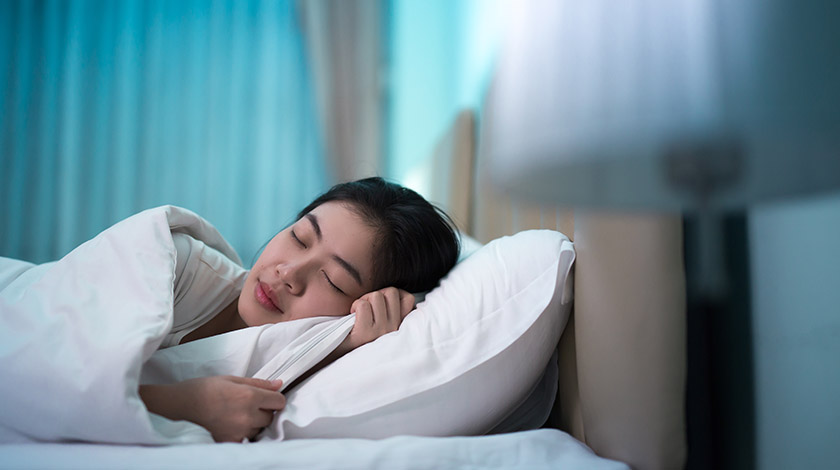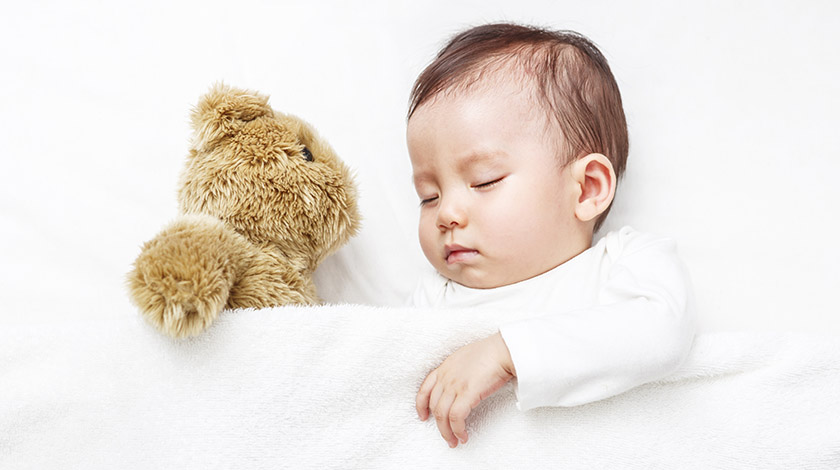There's a lot of misinformation out there about the relationship between sleep and age. For example, many believe that our sleep requirements consistently decrease as we get older, to the point where middle-aged adults require no more than 5 or 6 hours of sleep per night. In fact, adults usually need 7 to 8 hours of sleep per night!
Sleep is such an important component of a healthy lifestyle, it’s absolutely vital to separate myth from fact and get to grips with the physiological mechanisms behind quality sleep and regular sleep patterns. Here is the low-down on the relationship between sleep, and age.
Ageing and our body clock
One thing mainstream news sources have gotten right is that our sleep patterns vary once we get older. That’s because of changes to what’s colloquially known as our “body clock” — an internal physiological mechanism regulating our sleeping and waking times, and rhythms, in the course of one 24-hour cycle. Here’s how our sleep pattern evolves with age.
- Babies. Babies need far more sleep than adults and typically spend at least 16 to 18 hours a day sleeping. Studies have shown that sufficient sleep is vital for an infant’s mental and physical development.2 However, as any sleep-deprived parent will know, it’s rare for babies to sleep uninterrupted throughout the night. Instead, they take medium-length naps at fairly regular intervals.1
- Children and teenagers. By the time we reach the ages of four to six, we’ve gotten used to sleeping only at night, with the occasional daytime nap, and around 10 hours of sleep will usually suffice.2,3 Teenagers often suffer from a delayed body clock during puberty, making it difficult for them to get up in the morning. That’s why studies have shown that starting school too early in the morning is detrimental to many teenagers’ cognitive performance!2,3
- Adults. Most adults need 7 to 8 hours of sleep per night.2 Whatever difficulties they might have had going to bed early and waking up on time as a teenager have long dissipated as the rhythms of working life set in.
- Elderly. Elderly people need about the same amount of sleep as adults. however, as they experience more disrupted sleep, they may wake up more frequently at night and therefore tend to take short naps during the day.1
We all need sleep
As the above data makes clear, past childhood our sleep requirements stabilize at around 7 to 8 hours of sleep per night. It’s therefore a myth that the older we get, the less sleep we need.1
What decreases is not our sleep requirement, but our quality of sleep. As we age, sleep apnea (difficulty breathing while sleeping) and stress-related insomnia becomes more common. Women may also find that their sleep is affected by menopause — hot flushes, increased irritability and a delayed body clock are all common side-effects of menopause.
Ultimately, whatever our age, sufficient and high-quality sleep remains the cornerstone of a healthy lifestyle. It’s essential for physical recovery, mental revitalisation and emotional stability. If you constantly feel fatigued during the day, consider speaking to a sleep specialist today — your sleep is too important to be left to chance!
Sources
- Sleeping Well. Royal College of Psychologists. Visited 19 May 2014.
- The Good Night Guide for Children. The Sleep Council. Visited 19 May 2014.
- Insomnia. Help the Aged. Visited 19 May 2014.
© Cigna Healthcare 2023
Information provided in this article is intended for health and fitness purposes only and is not intended for use in the diagnosis of disease or other conditions, or in the cure, mitigation, treatment or prevention of disease (see Terms & Conditions for details). Any health-related information found in this article is available only for your interest and should not be treated as medical advice. Users should seek any medical advice from a physician, especially before self-diagnosing any ailment or embarking on any new lifestyle or exercise regime. Any information contained in this article may not be suitable, accurate, complete or reliable. Cigna Healthcare accepts no responsibility for the content or accuracy of information contained on external websites or resources, or for the security and safety of using them. "Cigna Healthcare" and the "Tree of Life" logo are registered trademarks of Cigna Intellectual Property, Inc. in the United States and elsewhere, licensed for use. All products and services are provided by or through operating subsidiaries, and not by The Cigna Group.





